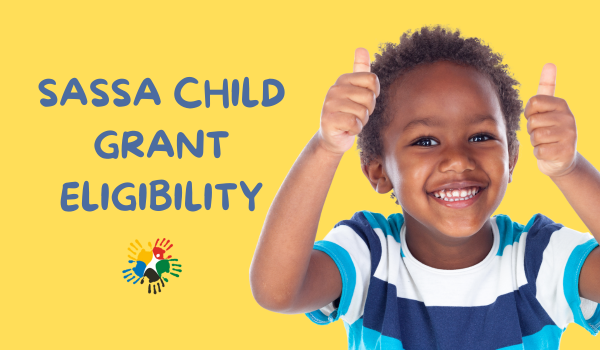Check out the latest updates on the SASSA Child Grant Eligibility: Who is Eligible and How to Get it in South Africa? The South African Social Security Agency governs social grants to entitled South Africans and permanent residents as a form of social assistance.
Contents
SASSA Child Grant Eligibility
The SASSA Child Grant is a financial assistance program introduced by the South African Government to support households taking care of their children. The Child Grant acts as a helping hand for families, ensuring children have sufficient food, clothes and other significant items required while growing up.
The Child Grants are meant to deliver financial assistance to manage basic needs for vulnerable groups. In general, the eligibility criteria include age, income, assets, caregiving status, residency status and many more. To get the complete list of the eligibility criteria, keep reading the article.
- R2,090 Grant Payment
- SASSA Payment Dates
- Universal Basic Income
- SASSA Grant Changes
- SASSA Child Grant Increase
Who is Eligible For the SASSA Child Grant?
Before you reach the official portal to claim the grants, make sure you meet the eligibility criteria set by the officials.
- The applicant must be a South African resident or someone holding a permanent visa or possess refugee status in South Africa. This means you need to meet one of the categories in order to receive the SASSA Child Grant.
- The claimants must be the primary caregivers of the child. If you are someone taking care of a child, you might be a parent or grandparent or must be aged 16 or over playing this crucial role.

- The child needs to be aged under 18 years to access the child grants.
- The child must not be receiving any sort of support through state institutions.
The current monthly Child Grant for the claimant is R530, with an additional R260 as a top-up.
How to Get a Child Grant in South Africa?
If you wish to claim the child grants, simply follow the comprehensive guide we have shared here.
- Visit the authentic website of the SASSA Grants using your web browser or simply click here to reach the official website.
- On the home page, look for grants and choose the grants you wish to claim for.
- Now, fill out all the essential credentials asked in the application, such as name, address, and child’s details.
- Submit the required documents and recheck whether all the information has been entered correctly in order to avoid any rejection of the application.
- If you are wondering what documents you need to submit during the application process. While applying for the grant, ensure you have proof of income, a child’s birth certificate, a bank statement of at least three months and identity documents.
Once you have applied, you can track your application online using the SASSA official website. All you need is the Reference number and ID number.
All We Know
If you have children and you are grappling with the increasing cost of living, you can receive additional funds each month to take care of your children. It is important to note that the grant is available only to the primary caregiver of a child under 18 years of age. If you are unable to access the online portal, it is advisable to complete the application process at a local SASSA office. The child support grants are mean tested.
If your income exceeds the income threshold, you will be terminated and will no longer be entitled to the Child Grant. For single individuals, the yearly income limit is set to R61,200. Meaning that your yearly earnings from all sources must be under this limit. Whereas, for married couples, the joint income limit must not surpass R122,400. This means both the partner’s combined income must be under the income threshold. The Child grants are disbursed on a monthly basis directly to the applicant’s bank account or via other payment methods they have elected during the application procedure. We hope that this article helps summarize how the SASSA Child Grants works and how to apply for it. For more such informative content, keep visiting our portal.

Rohan Manjrekar is a writer and consultant in scholarships and financial aid, dedicated to simplifying college funding. His work focuses on debt reduction and maximizing educational access for students from all backgrounds.
